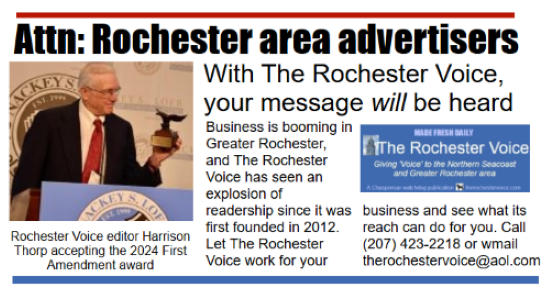DURHAM, N.H. - More than 30 percent of potential voters in the Granite State were either not old enough to vote in 2008 or lived in another state. These younger voters and recent migrants have the potential to change the political landscape of New Hampshire in the coming presidential primary and November election.
The state's established voters (39 percent), those who have resided in the state since at least 2008, and recent migrants (38 percent) are more likely to identify as Republicans than young voters (33 percent). More young voters also consider themselves to be liberal (35 percent) than either migrants (26 percent) or established voters (23 percent). These findings from the Carsey School at the University of New Hampshire are based on analysis of demographic, polling and voter registration data. The influence of young voters (129,000 celebrated their 18th birthday between 2008 and 2015) is heightened by the loss of 68,000 older residents from death.
"Young voters and people who have moved into the state in recent years are two powerful demographic forces that are reshaping the New Hampshire electorate," said co-author Kenneth Johnson, Carsey School senior demographer and professor of sociology at UNH, who wrote the report with UNH Survey Center Director Andy Smith and associate professor of political science Dante Scala. "Only 45 percent of the population residing in New Hampshire was born in the state. In comparison, nationwide 68 percent of the U.S.-born population lives in the same state where they were born. So judging what's going to happen in the New Hampshire primary based on what's happened in the past is perilous."
The report finds that between 2008 and 2015, 197,000 potential voters moved to New Hampshire - including a substantial number from the Boston area. These newcomers, combined with the 129,000 young residents reaching their 18th birthdays, represent a significant change in a state with just over one million potential voters.
"The changing demographic landscape also underscores the need for political pollsters in New Hampshire to carefully assess their sampling methods," said Smith, who is also an associate professor of political science. "The high percentage of new voters means that pollsters should not rely on lists of previous primary voters to draw samples because they would systematically exclude a high fraction of the electorate, including many young voters who have shown a propensity to support Vermont Senator Bernie Sanders."
"New Hampshire has one of the most mobile populations in the nation," said Scala. "In addition to these powerful demographic forces of change, mortality has further diminished the older generations of voters long associated with New Hampshire tradition as a bastion of Yankee Republicanism."
To download a copy of the report, go to https://carsey.unh.edu/publication/nh-electorate.
The Carsey School of Public Policy is nationally acclaimed for its research, policy education and engagement aimed at addressing important societal challenges. The school takes on the pressing issues of the 21st century, striving for innovative, responsive and equitable solutions at all levels of government and in the for-profit and nonprofit sectors.
The state's established voters (39 percent), those who have resided in the state since at least 2008, and recent migrants (38 percent) are more likely to identify as Republicans than young voters (33 percent). More young voters also consider themselves to be liberal (35 percent) than either migrants (26 percent) or established voters (23 percent). These findings from the Carsey School at the University of New Hampshire are based on analysis of demographic, polling and voter registration data. The influence of young voters (129,000 celebrated their 18th birthday between 2008 and 2015) is heightened by the loss of 68,000 older residents from death.
"Young voters and people who have moved into the state in recent years are two powerful demographic forces that are reshaping the New Hampshire electorate," said co-author Kenneth Johnson, Carsey School senior demographer and professor of sociology at UNH, who wrote the report with UNH Survey Center Director Andy Smith and associate professor of political science Dante Scala. "Only 45 percent of the population residing in New Hampshire was born in the state. In comparison, nationwide 68 percent of the U.S.-born population lives in the same state where they were born. So judging what's going to happen in the New Hampshire primary based on what's happened in the past is perilous."
The report finds that between 2008 and 2015, 197,000 potential voters moved to New Hampshire - including a substantial number from the Boston area. These newcomers, combined with the 129,000 young residents reaching their 18th birthdays, represent a significant change in a state with just over one million potential voters.
"The changing demographic landscape also underscores the need for political pollsters in New Hampshire to carefully assess their sampling methods," said Smith, who is also an associate professor of political science. "The high percentage of new voters means that pollsters should not rely on lists of previous primary voters to draw samples because they would systematically exclude a high fraction of the electorate, including many young voters who have shown a propensity to support Vermont Senator Bernie Sanders."
"New Hampshire has one of the most mobile populations in the nation," said Scala. "In addition to these powerful demographic forces of change, mortality has further diminished the older generations of voters long associated with New Hampshire tradition as a bastion of Yankee Republicanism."
To download a copy of the report, go to https://carsey.unh.edu/publication/nh-electorate.
The Carsey School of Public Policy is nationally acclaimed for its research, policy education and engagement aimed at addressing important societal challenges. The school takes on the pressing issues of the 21st century, striving for innovative, responsive and equitable solutions at all levels of government and in the for-profit and nonprofit sectors.














